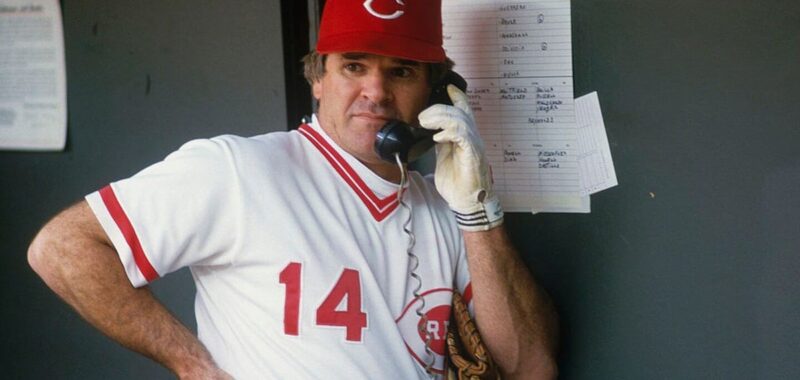In the aftermath of the accusations that the Chicago White Sox threw the 1919 World Series against the Cincinnati Reds, Major League Baseball instituted an official rule against gambling. MLB Rule 21(d) states: “Any player, umpire, or Club or League official or employee, who shall bet any sum whatsoever upon any baseball game in connection with which the bettor has a duty to perform, shall be declared permanently ineligible.”
An investigation into Pete Rose showed that he bet on baseball both as a player and a manager while with the Cincinnati Reds late in his career. Rose served as the Reds’ player-manager from August 1984 until 1986. He continued to manage the Reds after he stopped playing.
Rose denied gambling on baseball at the time. He later claimed he had an understanding that he could apply for reinstatement a year after agreeing to the punishment. The commissioner at the time, A. Bartlett Giamatti, died eight days after Rose’s banishment. His successor, Fay Vincent, never heard Rose’s appeal.
In 1991, in what would’ve been Rose’s first year of eligibility on the Baseball Writers Association of America Hall of Fame ballot, the Hall of Fame instituted a rule barring anyone on the permanently ineligible list from being eligible for the Hall of Fame.
After denying that he bet on baseball for nearly 15 years, Rose admitted to betting on baseball in his 2004 book, “My Prison Without Bars.” Later, he would sign and sell baseballs with the inscription, “Sorry I bet on baseball.”
Rose continued to deny betting against the Reds.

